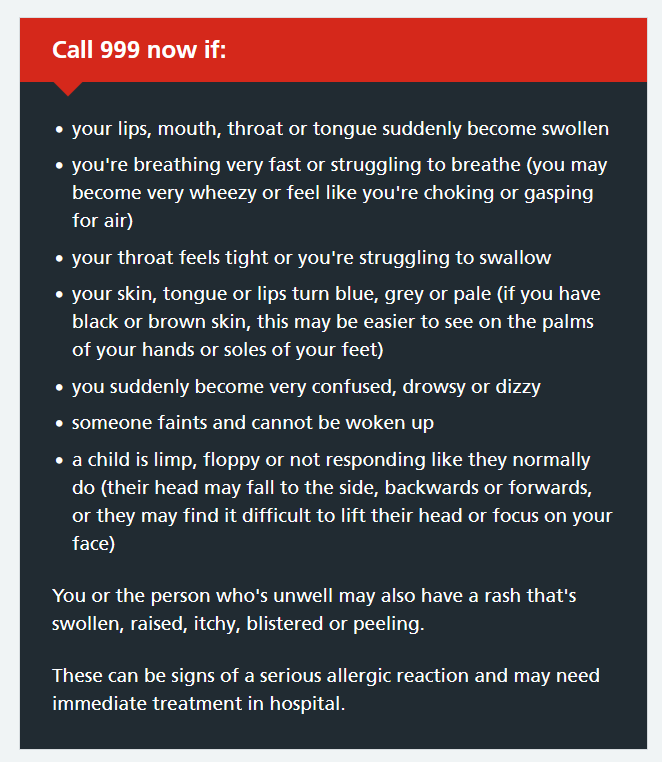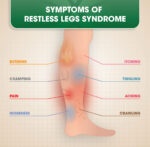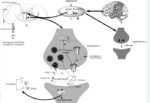When taking gabapentin, several precautions should be followed to ensure its safe and effective use.
It is very important that your doctor check your progress at regular visits, especially in the first few months if you have epilepsy. This will allow your doctor to see if the medicine is working properly and to decide if you should continue to take it. Check with your doctor right away if you have a fever, rash, swollen, painful, or tender lymph glands in the neck, armpit, or groin, unusual bleeding or bruising, or yellow eyes or skin. These may be symptoms of a serious and life-threatening allergic reaction called drug reaction with eosinophilia and systemic symptoms (DRESS) or multiorgan hypersensitivity.
This medicine may cause serious allergic reactions, including anaphylaxis and angioedema, which can be life-threatening and require immediate medical attention. Call your doctor right away if you have a rash, itching, trouble breathing, trouble swallowing, or any swelling of your hands, face, or mouth while you are using this medicine.
Gabapentin may cause vision changes, clumsiness, unsteadiness, dizziness, drowsiness, sleepiness, or trouble with thinking. Make sure you know how you react to this medicine before you drive, use machines, or do anything else that could be dangerous if you are not alert, well-coordinated, or able to think or see well. If these side effects are especially bothersome, check with your doctor.
This medicine may cause some people to be agitated, irritable, or display other abnormal behaviors, such as feeling sad or hopeless, getting upset easily, or feeling nervous, restless, or hostile. It may also cause some people to have suicidal thoughts and tendencies or to become more depressed. If you, your child, or your caregiver notice any of these side effects, tell your doctor right away.
This medicine will add to the effects of alcohol and other CNS depressants (medicines that make you drowsy or less alert). Some examples of CNS depressants are antihistamines or medicine for hay fever, allergies, or colds, sedatives, tranquilizers, or sleeping medicines, prescription pain medicine or narcotics, other medicines for seizures (eg, barbiturates), muscle relaxants, or anesthetics, including some dental anesthetics. Check with your medical doctor or dentist before taking any of the above while you or your child are using gabapentin.
This medicine may cause respiratory depression, a serious breathing problem that can be life-threatening, when used together with narcotic pain medicines. Check with your doctor right away if you have pale or blue lips, fingernails, or skin, difficult or trouble breathing, or irregular, fast or slow, or shallow breathing.
Do not stop using gabapentin without checking with your doctor. Stopping the medicine suddenly may cause seizures. Your doctor may want you or your child to gradually reduce the amount you are taking before stopping it completely.
Make sure any doctor or dentist who treats you knows that you are using this medicine. This medicine may affect the results of certain medical tests.
Do not take other medicines unless they have been discussed with your doctor. This includes prescription or nonprescription (over-the-counter [OTC]) medicines and herbal or vitamin supplements.
These precautions help reduce the risk of side effects, interactions, and complications. Here’s what you should be aware of:
1. Medical History and Conditions
- Kidney disease: Gabapentin is primarily excreted by the kidneys, so individuals with impaired kidney function may require dose adjustments. Always inform your doctor if you have any kidney issues.
- Seizure disorders: If you’re using gabapentin for epilepsy, stopping it abruptly can trigger seizures. Make sure to follow your doctor’s instructions for tapering the medication if discontinuation is needed.
- Respiratory issues: Gabapentin can slow breathing, particularly when taken with opioids or if you have pre-existing breathing problems (e.g., chronic obstructive pulmonary disease, or COPD). Use with caution if you have any respiratory conditions.
2. Drug Interactions
- Opioids and CNS depressants: Taking gabapentin with other central nervous system depressants (like opioids, benzodiazepines, or alcohol) can increase sedation, dizziness, and risk of respiratory depression. Caution should be taken, especially in elderly or frail individuals.
- Antacids: Antacids containing aluminum or magnesium can reduce the absorption of gabapentin. It’s best to take gabapentin at least 2 hours after taking antacids to ensure it is absorbed properly.
3. Potential Side Effects
- Drowsiness and dizziness: Gabapentin can cause significant drowsiness or dizziness, particularly when first starting the medication or increasing the dose. Avoid driving or operating heavy machinery until you know how the medication affects you.
- Mood and behavior changes: Gabapentin has been associated with changes in mood, including depression, anxiety, and suicidal thoughts. If you or your family notice any changes in behavior or mood, contact your healthcare provider immediately.
- Weight gain: Some people may experience weight gain while taking gabapentin. Monitoring your diet and physical activity may help control this.
4. Pregnancy and Breastfeeding
- Pregnancy: Gabapentin is classified as a Category C drug, meaning it may cause harm to an unborn baby based on animal studies. If you are pregnant or planning to become pregnant, discuss the risks and benefits of using gabapentin with your doctor.
- Breastfeeding: Gabapentin can pass into breast milk and may affect a nursing infant. If you are breastfeeding, talk to your doctor about whether you should continue the medication.
5. Tapering and Discontinuation
- Do not stop abruptly: Stopping gabapentin suddenly can lead to withdrawal symptoms, especially if you’ve been on it for an extended period. This is particularly important for those using it to control seizures, as abrupt discontinuation can trigger seizure activity. Always taper off gabapentin under medical supervision.
6. Elderly Population
- Increased sensitivity: Older adults may be more sensitive to the sedative effects of gabapentin, leading to an increased risk of falls, dizziness, and coordination problems. Dosing may need to be adjusted in elderly patients to minimize side effects.
7. Alcohol and Substance Use
- Limit alcohol: Alcohol can increase the sedative effects of gabapentin, leading to excessive drowsiness, dizziness, or impaired coordination. It’s recommended to avoid or limit alcohol consumption while taking gabapentin.
8. Allergic Reactions
- Hypersensitivity reactions: Although rare, serious allergic reactions (including swelling of the face, lips, tongue, or throat, and difficulty breathing) can occur. If you experience any signs of an allergic reaction, seek emergency medical help immediately.
9. Effects on Mental Alertness
- Cognitive effects: Gabapentin can cause problems with memory, concentration, and general cognitive function. Be aware of any cognitive side effects, especially if your work or daily activities require a high level of mental focus.
10. Monitoring for Signs of Abuse
- Misuse potential: Gabapentin is not a controlled substance, but some reports suggest it can be misused, especially by individuals with a history of substance abuse. Use gabapentin only as prescribed and never share it with others.
11. Blood Sugar Levels in Diabetics
- Effect on blood sugar: Gabapentin may affect blood sugar control in people with diabetes. If you have diabetes, monitor your blood sugar levels closely while on this medication and inform your doctor if you notice significant changes.
12. Long-Term Use Considerations
- Bone health: Long-term use of gabapentin may increase the risk of bone fractures in certain populations, especially older adults. If you are at risk for osteoporosis, discuss this with your doctor to monitor your bone health.
Key Takeaways:
- Gabapentin can interact with other medications, such as opioids and antacids, and should be used cautiously if you have underlying health conditions like kidney disease or respiratory issues.
- It can cause side effects like drowsiness, dizziness, and mood changes, and it should not be stopped abruptly.
- Pregnant or breastfeeding women should weigh the risks and benefits with their doctor, and older adults may require lower doses due to increased sensitivity.
Following these precautions will help reduce risks and ensure that gabapentin is used safely under the guidance of your healthcare provider.
Pain Medications, Pain Relief, and Pain Management








